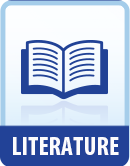|
This section contains 8,838 words (approx. 30 pages at 300 words per page) |

|
SOURCE: Helgerson, Richard. “Barbarous Tongues: The Ideology of Poetic Form in Renaissance England.” In The Historical Renaissance: New Essays on Tudor and Stuart Literature and Culture, edited by Heather Dubrow and Richard Strier, pp. 273-92. Chicago: University of Chicago Press, 1988.
In the following lecture, originally presented in 1984, Helgerson looks at the connection between language and national identity, considering Ascham's The Scholemaster as an influential text in the history of Renaissance literary self-fashioning. Placing Ascham between Edmund Spenser and Ben Jonson, Helgerson discusses Ascham's role in the search for new national prosody.
I
Midway through one of his letters to Harvey, Spenser exclaims, “Why a God's name may not we, as else the Greeks, have the kingdom of our own language?”1 For years bits of this sentence have been running through my head. Here, it has seemed to me, Spenser gave voice to the generative impulse that lay behind...
|
This section contains 8,838 words (approx. 30 pages at 300 words per page) |

|


